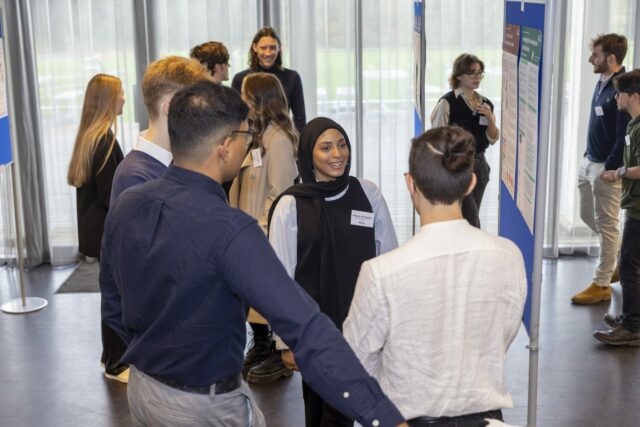The Undergraduate Research Opportunities Programme (UROP) offers students at the University of Reading the chance to gain hands-on research experience across all disciplines. Every November, UROP holds a showcase event for participants, and winners are announced for each research theme. In this blog, the 2022 winners and their supervisors reflect on the benefits of the programme.
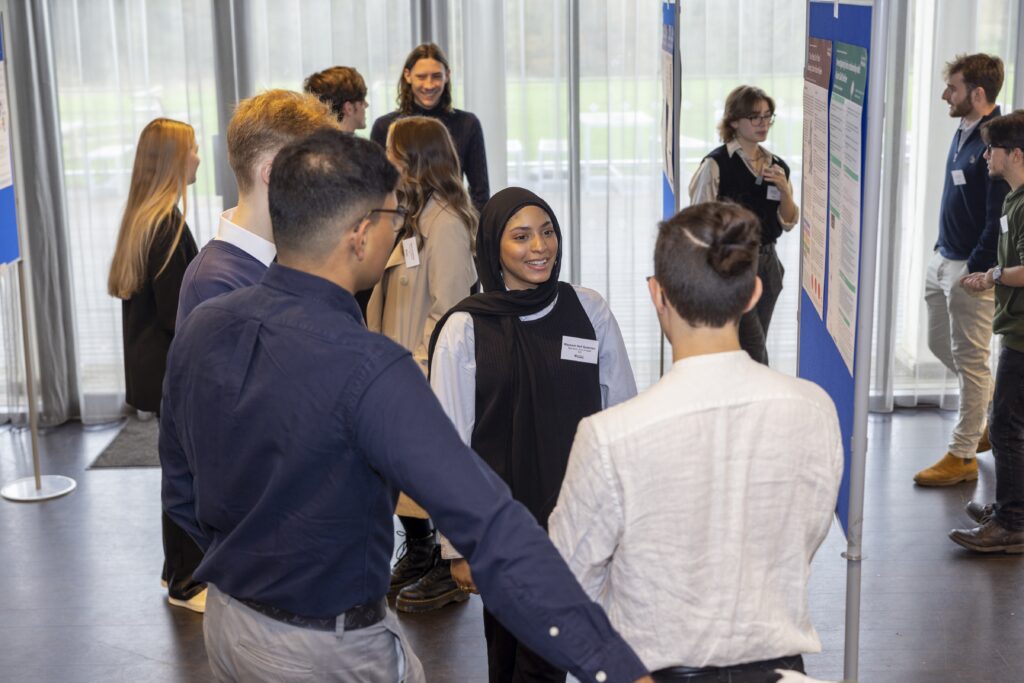
Agriculture, Food and Health: Megan Gompels
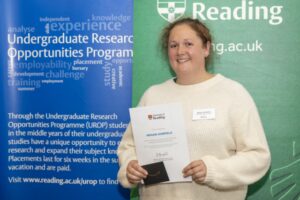 The UROP program has been a fantastic opportunity for me to gain research experience in an area that interests me, and I which hope to pursue through further study. I have enjoyed every moment of this research project and have my two brilliant supervisors, Rich and Wiebke, to thank for that.
The UROP program has been a fantastic opportunity for me to gain research experience in an area that interests me, and I which hope to pursue through further study. I have enjoyed every moment of this research project and have my two brilliant supervisors, Rich and Wiebke, to thank for that.
Megan is studying for a BSc in Psychology and Neuroscience. Her project, Does a lack of control over pain lead to learned helplessness?, explored uncontrollable pain and its psychological consequences.
Depression in chronic pain patients is associated with poor treatment outcomes, personal suffering, and intense pain. It is therefore crucial to understand the mechanisms leading to the development of depression as a consequence of pain. Models of learned helplessness are an experimental attempt to translate this clinical phenomenon to the laboratory.
Similar to depression, learned helplessness induces signs of decreased motivation, negative mood and increased anxiety by exposing subjects to uncontrollable stressors. In this study we developed a learned helplessness model with pain as the stressor. We hypothesised that exposure to uncontrollable pain can lead to increased anxiety levels, increased negative affect and reduced motivation, thus eliciting signs of learned helplessness.
Thirty participants completed a series of questionnaires measuring anxiety, and positive and negative affect before and after completing an impossible ‘Where’s Wally task’ where Wally was not in any of the images. Participants were exposed to trains of electric shocks whilst trying to find Wally. They were led to believe that if they found Wally, the painful stimulus would be stopped. Participants were asked to provide pain intensity and effort ratings using numerical rating scales every 5 trials throughout the 50-trial ‘Where’s Wally’ task. The data supported our hypothesis, thus indicating that the new task elicited learned helplessness as a consequence of being exposed to uncontrollable pain.
Heritage and Creativity: Kimberley Tang
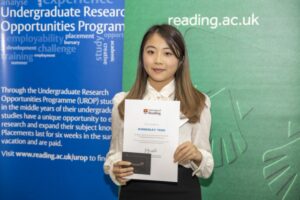 This was a wonderful experience – not only did it give me a taste of being a researcher, but also built my confidence in reading different people’s language uses. It gave me a new perspective in seeing the connection between language and the real world, brought me wonderful new skills, and will help with my future career choices.
This was a wonderful experience – not only did it give me a taste of being a researcher, but also built my confidence in reading different people’s language uses. It gave me a new perspective in seeing the connection between language and the real world, brought me wonderful new skills, and will help with my future career choices.
Kimberley is studying for a degree in English Language and Linguistics. Her project was Socratic Questionnaires: New Interactive Online Methods in Experimental Philosophy of Language.
It tested the argument raised by some philosophers that standard surveys do not give us any philosophically interesting responses due to the lack of time and motivation provided to the participants to think hard about their answers.
To test the argument, we out carried the experiment in a naturalistic conversational setting. During the conversation, the participants were asked to explain and defend their answers against pushback from the experimenter. The Socratic Questionnaire was presented to the participants with online chats, and two different online surveys. We then compared the responses collected from the three different formats. To our surprise, there is no evidence showing that giving people more time to think about their answers, in more naturalistic settings, leads to more in responses to philosophical scenarios.
Kimberley’s supervisor, Nat Hansen, Associate Professor of Philosophy, said:
Reading’s Undergraduate Research Opportunities Programme has connected me with outstanding students who have pushed my research in exciting new directions and expanded our department’s interdisciplinary connections between philosophy, psychology, and linguistics.
Prosperity and Resilience: Martina Mabale de Burgos
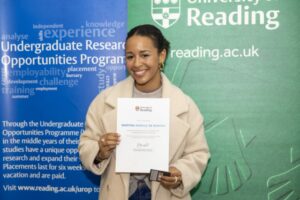 The winner for the Prosperity and Resilience theme was Martina Mabale de Burgos with her project ‘Teachers like us’– understanding minority students’ perspectives on barriers to becoming teachers, supervised by Nasreen Majid and Holly Joseph.
The winner for the Prosperity and Resilience theme was Martina Mabale de Burgos with her project ‘Teachers like us’– understanding minority students’ perspectives on barriers to becoming teachers, supervised by Nasreen Majid and Holly Joseph.
Environment: Brendon Watson
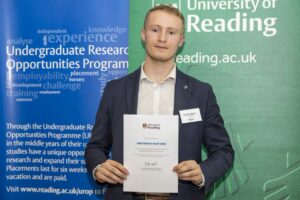 For the Environment theme, the winner was Brendon Watson with a project on Visualising geospatial data in an interactive 3D model of the Reading area.
For the Environment theme, the winner was Brendon Watson with a project on Visualising geospatial data in an interactive 3D model of the Reading area.
Ian Ewart, Associate Professor in the School of Construction Management and Engineering, and Brendon’s supervisor, said:
Research is an integral part of being an academic, but sometimes this can be lost in amongst the other activities and responsibilities that fill our time. Supervising a UROP student is a great way to push forward your research interests and maintain momentum on those projects that never get the attention they deserve.
In my case, I have been working on creating a digital model of Reading for several years, and reached the point where it was visually interesting, but ultimately dumb. To add data to the model and build in some functionality would take time, both to collect data and to develop skills.
This is where the UROP scheme worked so well – recruiting Brendon meant that I was able to describe to him what I wanted, and he then figured out how to do it. He was able to show me the problems he encountered and some potential solutions, which have been incorporated into the current version of the model. So we now have the beginnings of a smart city model that will allow us to analyse and visualise data from the level of individual buildings to the wider city region.
Find out more about the Undergraduate Research Opportunities Programme (UROP).

